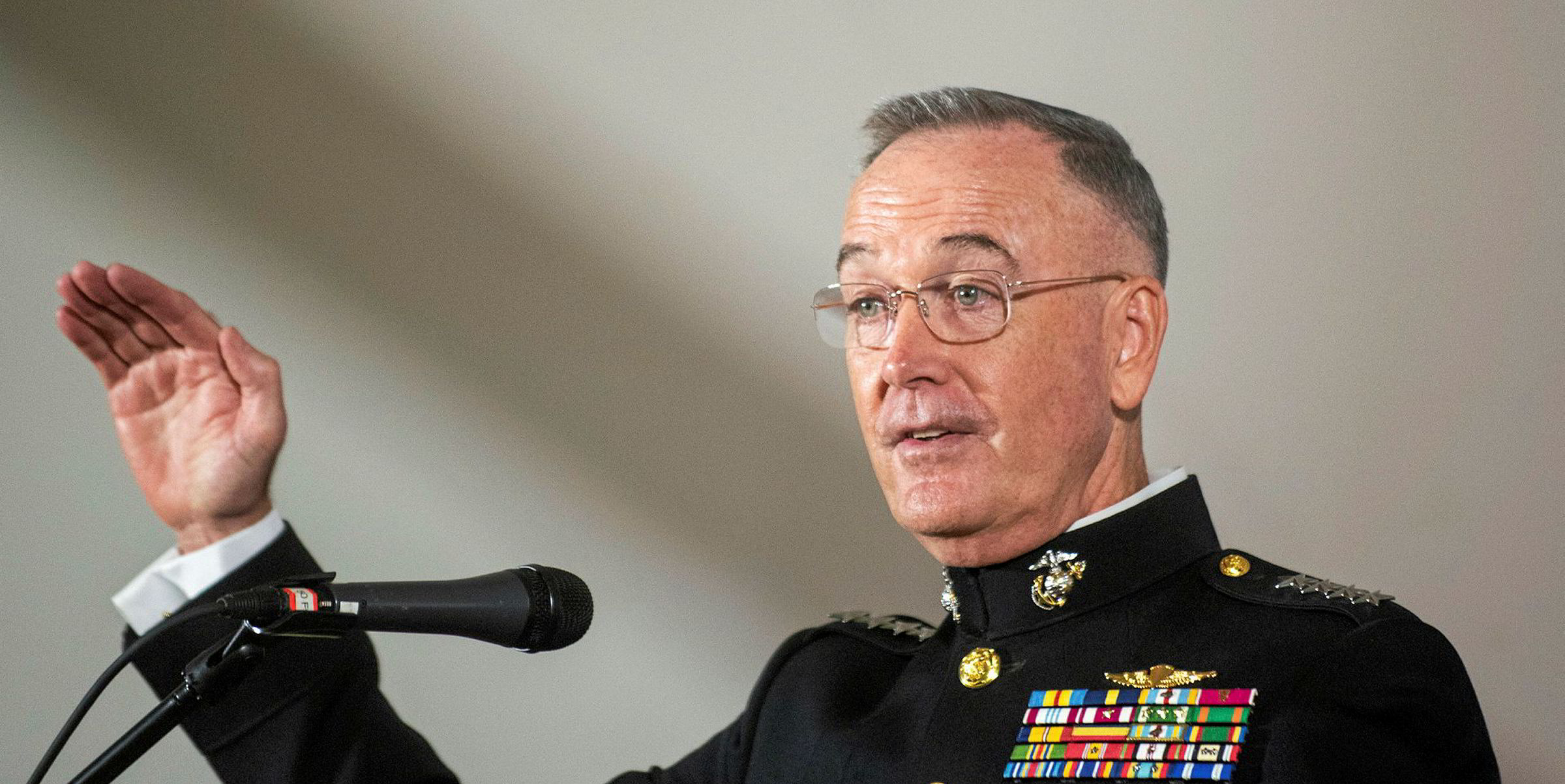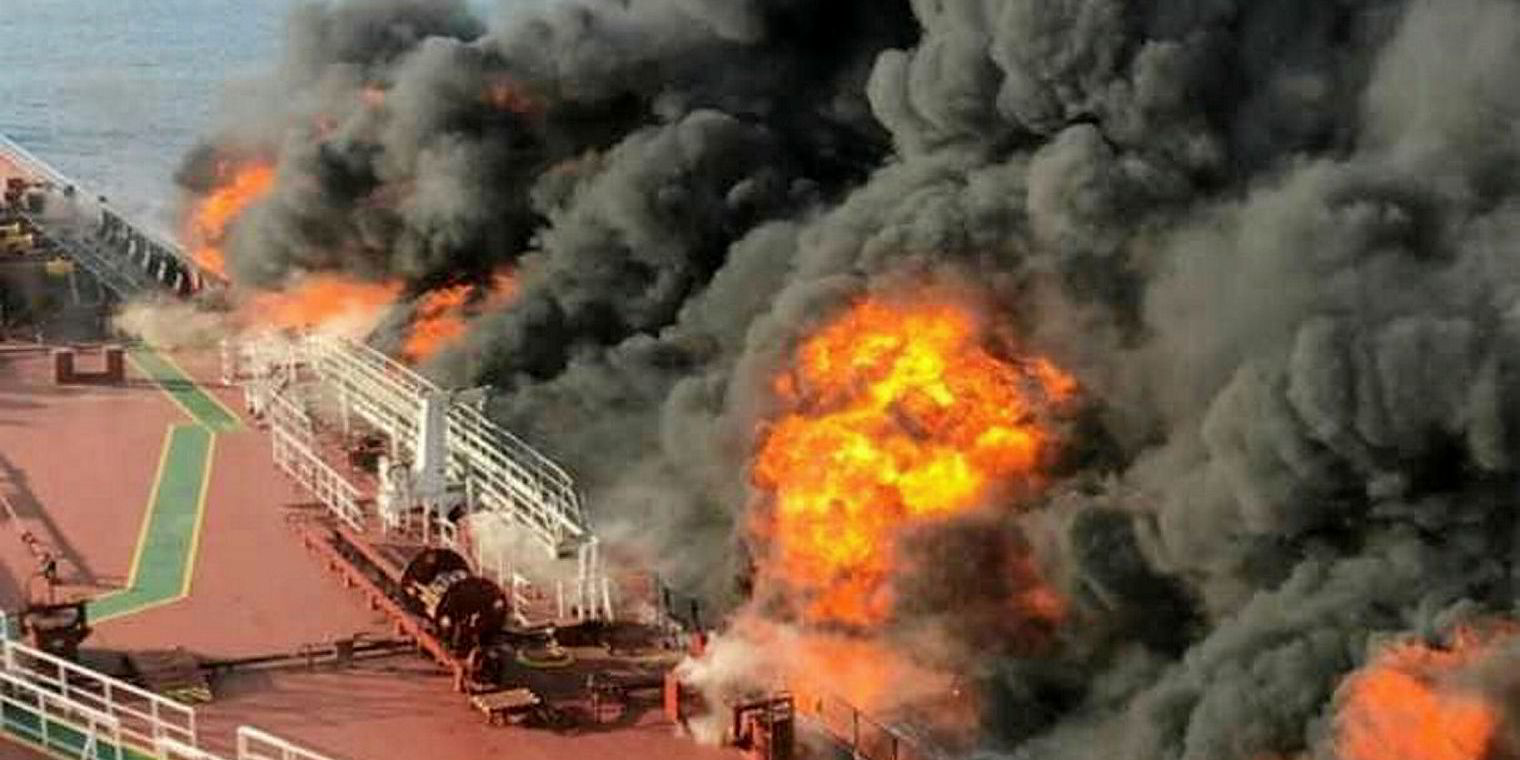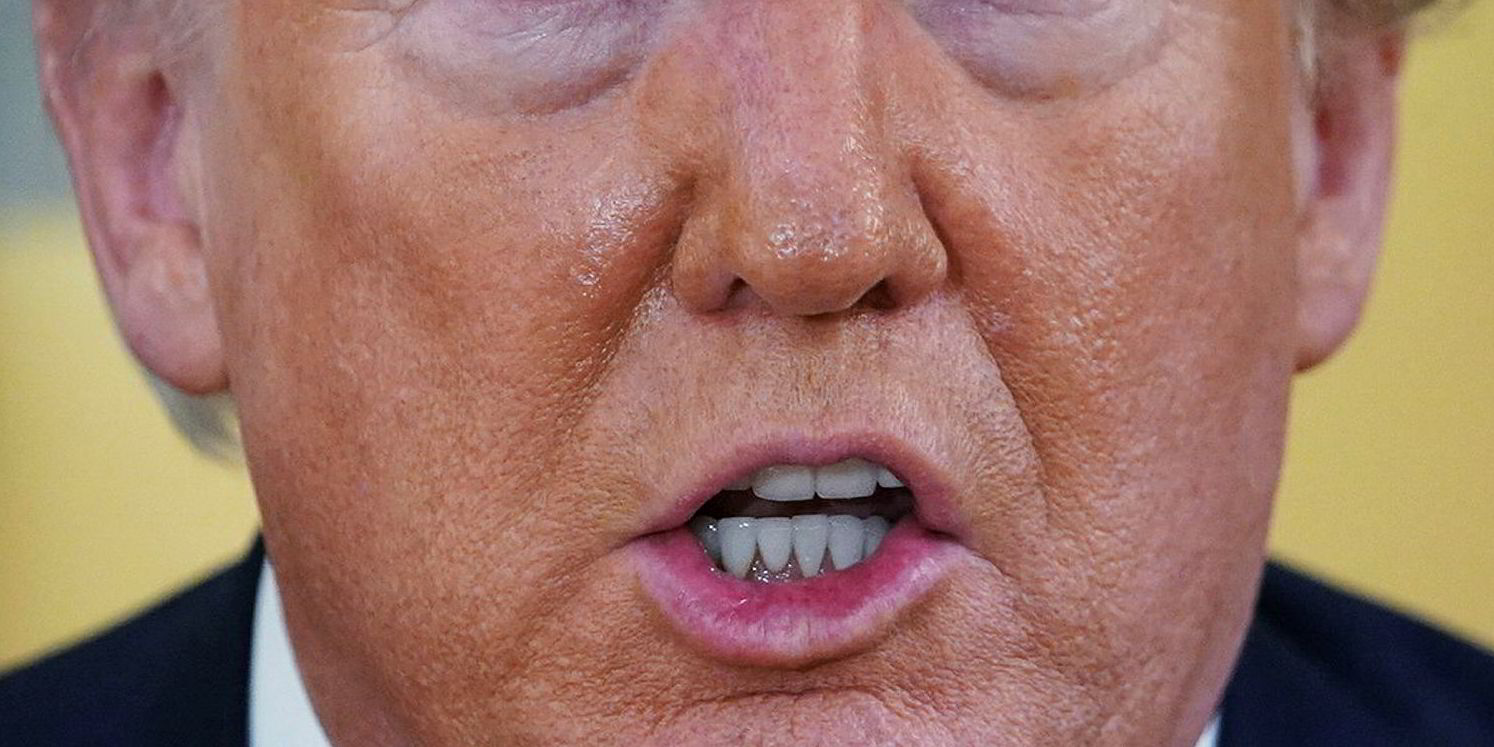The US is looking to build a coalition to protect commercial shipping in the Middle East Gulf, according to several media reports.
Following two tanker attacks last month, and the sabotage of four more in May, the US is planning to gather allies in the coming weeks.
They plan to patrol the economically and politically sensitive waters and escort commercial ships flying the coalition's flags.
Political will
The plans were made public on Tuesday by US Marine Corps general and chairman of the Joint Chiefs of Staff James Dunford.
"We're engaging now with a number of countries to see if we can put together a coalition that would ensure freedom of navigation both in the Strait of Hormuz and the Bab al-Mandab," Dunford said.
We'll identify which nations have the political will to support that initiative and then we'll work directly with the militaries
US Marine Corps general James Dunford
"And so, I think probably over the next couple of weeks, we'll identify which nations have the political will to support that initiative and then we'll work directly with the militaries to identify the specific capabilities that'll support that."
The plan would see the US providing command ships and leading surveillance efforts.
Blame game
On 13 June, the Frontline-owned 110,000-dwt Front Altair (built 2016) suffered three explosions and a fire onboard, while the 27,000-dwt Kokuka Courageous (built 2010) suffered hull damage above the water line.
The attacks, which the US quickly blamed on Iran, were the fifth and sixth this year, after four tankers were allegedly sabotaged in the waters off Fujairah.
Iran has denied involvement. Security experts have said it is probable that Iran carried out the attacks, but have had a difficult time coming up with a motive.
Tanker wars
In the days after the most recent attacks, US President Donald Trump argued that countries should protect their own ships in the region, which carries roughly a third of all the world's seaborne oil.
The United Arab Emirates has already voiced its support for a collective defense of shipping.
The attacks hearkened back to the Tanker Wars of the 1980s, in which Iraq and Iran attacked commercial ships destined for the other's ports in an extension of the brutal, near decade-long war between the two countries.
At the outset of the Tanker Wars in 1981, just five ships were attacked, but shipping veterans do not expect similar attacks — which escalated to a total of 451 — in the absence of a traditional shooting war.






